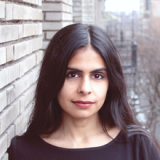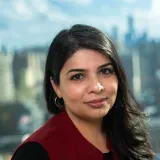Book Launch for David Engerman's Apostles of Development: Six Economists and the World They Made
The battle against global poverty that began after World War II was a major undertaking engaging economists, engineers, and organizations. Featuring front and centre were six remarkable economists: Amartya Sen, Manmohan Singh, Mahbub ul Haq, Jagdish Bhagwati, Rehman Sobhan, and Lal Jayawardena, all born as colonial subjects in the British Empire and studied at Cambridge University. They represented a new figure on the world scene — the Third World development expert — and played a crucial role in global debates about poverty and development.
Apostles of Development examines their different economic doctrines and the ongoing debate surrounding economic theory in poor countries compared to rich ones. The lives of these apostles reveal how development did not begin with textbooks but with real-world attempts to solve very specific and pressing problems. Finally, the book emphasizes that development was a Global South project first and foremost, aiming to improve the conditions of the world’s poorest countries.
It challenges the conventional wisdom that sees development only as a tool of rich countries to dominate, or as proof of their humanitarian spirit. It argues that development succeeds not when it follows ideological prescriptions, but when it looks for what works. The fading of grand visions shaped by ideological concerns has been one of the lasting effects of the end of the Cold War. The book argues that the best way forward is determined modesty, focusing on practical matters, such as addressing gross inequality and insisting that development means more than just economic growth. Given the salience of questions of economic inequality and the constant visibility of the promises and problems of economic development in the world today, this is a timely and important read.
Speakers

David C. Engerman is a scholar of twentieth-century international history. Building on his dual training in American and Russian/Soviet history at the University of California-Berkeley (where he received his Ph.D. in 1998), he wrote two books on the place of Russia and the USSR in American intellectual and political life: Modernization from the Other Shore: American Intellectuals and the Romance of Russian Development (Harvard UP, 2003) and Know Your Enemy: The Rise and Fall of America’s Soviet Experts (Oxford UP, 2009).

Durba Mitra is Richard B. Wolf Associate Professor in Studies of Women, Gender, and Sexuality at Harvard University. Mitra’s scholarship brings together feminist studies, sexuality studies, and global intellectual history. Mitra's second book, The Future That Was: Third World Feminism and the Crisis of Authoritarianism, is forthcoming from Princeton University Press in early 2026. The Future That Was analyzes the history of Third World feminist thought and South-South research networks. As part of her research for The Future That Was, Mitra was the curator of a multimedia exhibit, "Solidarity! Transnational Feminisms Then and Now," at the Poorvu Gallery at the Schlesinger Library on the History of Women in America. She has several ongoing book projects, including a book on shelter and relief in Asian diasporas, a book of essays on sexuality and social science, and a curation of interviews with global feminist thinkers.

Sandeep Bhardwaj is a doctoral candidate in History at Ashoka University, India. He has a Masters in International Relations from University of Chicago. His research interests include Indian diplomatic history, economic history, decolonisation, Asian regionalism, continuities between colonial and post-colonial Asia and Cold War-era Third Worldism.
His current project explores the evolution of India’s political, economic and conceptual relationship with the East Asia region (comprising modern-day Northeast Asia and Southeast Asia) from the inter-war period to the 1950s. In particular, he examines India’s changing location in the conceptual geography of Asia as imagined by Indian elites as well as external actors. The project explores five themes: regionalism, decolonisation, trade, economic multilateralism and diaspora.

Amna Qayyum serves as Research Program Director for the Faith and Global Health Initiative at Georgetown University Global Health Institute. Trained as a historian, her research focuses on how gender, health, and religion shape political economy and global governance. Her current book project focuses on the politics of reproductive health in Pakistan and Bangladesh. Her research has been awarded the 2021 Pirzada Prize in Pakistan Studies by the University of California, Berkeley. Prior to joining Georgetown, Qayyum was a Fellow at The Brookings Institution, directing a research portfolio and fellowship program on gender and global development. She has also held a postdoctoral appointment at the Jackson School of Global Affairs at Yale University and has served as an expert advisor to the Government of Pakistan and the New America Foundation on gender, health, and human security. Her writing and commentary have appeared in Diplomatic History, the Washington Post, and the Brookings platform. She holds a doctoral degree from Princeton University.

Poornima holds a PhD in Anthropology from Columbia University, an MA in History from Jawaharlal Nehru University and a BA in Ethics, Politics and Economics from Yale University. Drawing on her varied training, she believes strongly in the importance of interdisciplinary approaches to the study of inequality, especially when it comes to recognizing and addressing the compounding overlaps between economic inequalities on the one hand and racialized and gendered hierarchies on the other.
- Humanity